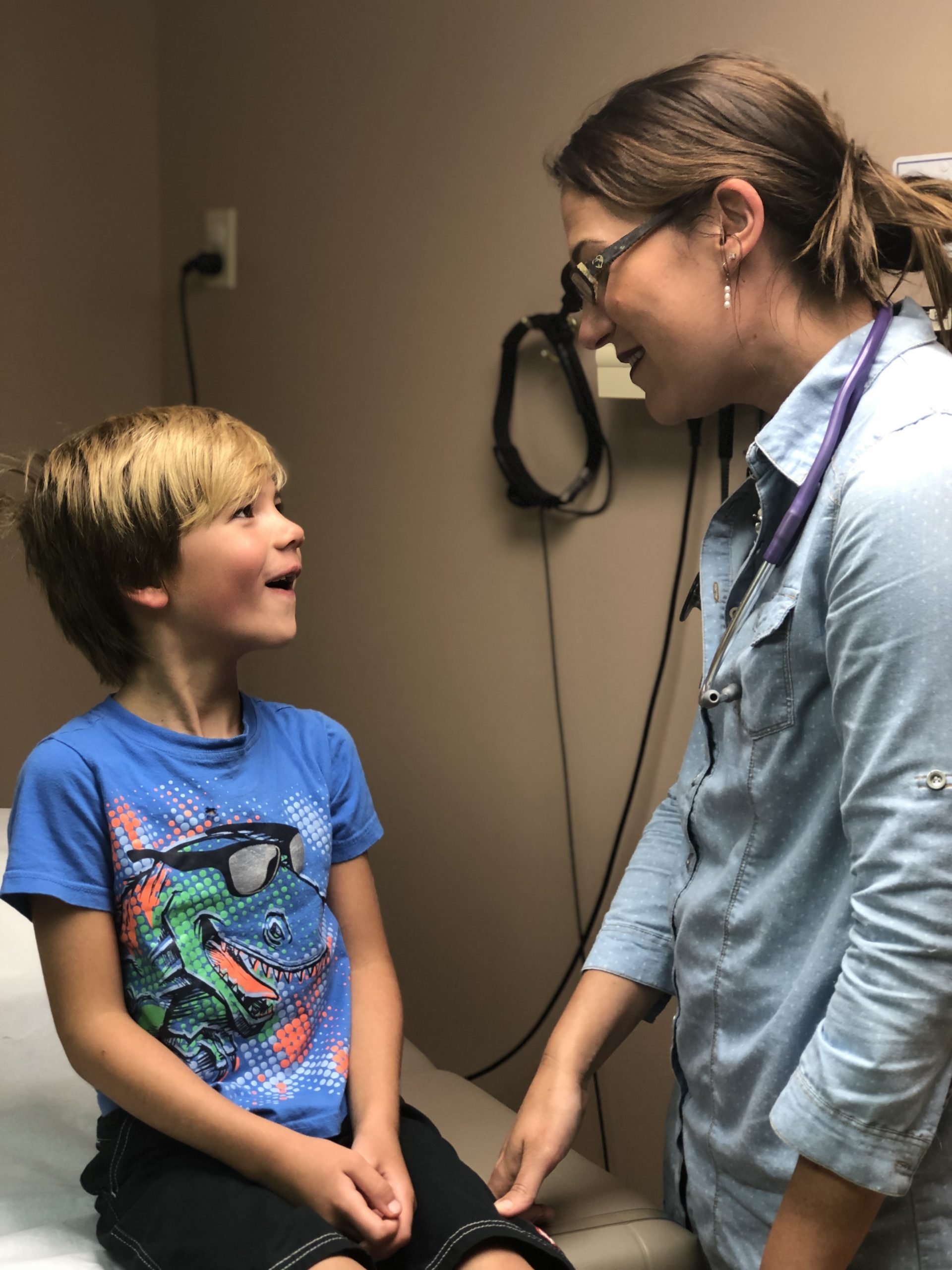PAs Urge Catch-Up Vaccinations during National Immunization Awareness Month
Protect Children and Communities With Safety Practices and Compliance Checks
August 20, 2020

In support of National Immunization Awareness Month activities this August, AAPA and PAs are joining a national effort, “Catch-Up to Get Ahead,” to address the alarming declines in routine childhood immunization that happened as a result of the COVID-19 pandemic. Vaccines are essential in protecting children and family members from a number of serious diseases including measles, meningitis, and whooping cough. This fall, we encourage PAs to support families in their practices to catch children up on their recommended vaccines.
AAPA spoke to two PAs regarding vaccinations: Michelle Kerr, PA-C, and Sarah McQueen, DMs, PA-C. Kerr has worked predominantly in pediatrics since the mid-1990s. In addition to her clinical practice, Kerr serves a dual role as the assistant specialty medical director for three children’s urgent care centers and is the chief advanced practice provider (APP) for the urgent care division of Atrium Health in Charlotte, North Carolina. As chief APP, Kerr oversees 30 urgent care locations and more than 120 advanced practice providers. For more than 12 years, McQueen has worked at Dayspring Health in Williamsburg, Kentucky, serving as the center’s vaccine coordinator. She also serves as adjunct faculty at Lincoln Memorial University PA Program.
[Catch-Up, Get Ahead Vaccination Tools]
2020 a critical year for vaccines
“It is extremely important for children to be vaccinated this year,” McQueen says. “We need to protect our children and communities against the rise of other epidemics in the midst of COVID-19 and the start of flu season. We do not want to see outbreaks of pertussis or Hib related pneumonias while trying to protect our already overloaded hospital systems and PPE supplies. Clinicians should be having conversations with children they see now about getting their influenza vaccines once they are widely available.”
This year it is more important than ever for children to be vaccinated, Kerr adds. “COVID-19 has many similar symptoms to other childhood illnesses. Obtaining vaccines can help minimize the confusion around overlapping/concurrent illnesses along with COVID-19.”
Children and young adults are usually required to receive vaccines before entering day care, elementary, middle or high school, and college. To make sure they are caught up on the vaccinations before they start school, PAs should identify children who are behind on routine vaccinations and actively encourage timely catch-up. Part of this effort will include reassuring parents that their practice has taken the necessary precautions to protect everyone from COVID-19.
Visible safety measures important for families
Kerr describes the practices establishing COVID-19 safety instituted at Atrium Health Children’s Urgent Care Clinics. “It’s very important to make sure safety measures are visible to all who enter the buildings. ‘Stop’ signs on the wall keep families from passing in the hall; signs on the doors specifically state the last time the rooms was cleaned (very visible to families); we delineate sick areas from well areas; and we allow well patients to stay in their vehicles until the child is ready to be seen so they can go directly into a room and not sit in the waiting room. Primary care offices could set up specific vaccine administration times for healthy children first thing in the morning so there is no overlap with known sick children. All of these steps help families know we are concerned for their safety and aware of their fears.”
[Find CME and Other Member Benefits]
Use your EHR systems to check compliance
According to McQueen, “One of the best uses of Electronic Health Records (EHR) systems is pulling reports at critical ages to check vaccine compliance and call to schedule them an appointment. Groups to target would be 6 months, 12 months, 2 years, 5 years, and 12. These age ranges will give you a good start at finding kids who are behind without overwhelming the system. We need to make sure our younger children are getting vaccinated as these parents may have been nervous to get out during the pandemic. I also encourage everyone to set up standing order protocols for childhood vaccines in their clinic or with their own MA. Don’t just wait for the well child appointments to update vaccines.”

Both Kerr and McQueen have heard concerns expressed by parents. “Some parents are worried about exposure while waiting for an appointment so try to find ways to reassure parents that you are making every effort for their safety. Our clinic has employed well-child Wednesdays where only well children are allowed to come for well child visits but also non-contagious appointments such as weight checks, thrush, behavioral evaluations, etc. Some parents are simply putting off visits since many school systems are doing virtual learning. We need to stress the importance of vaccines and the epidemics they prevent in these age groups,” says McQueen.
[Find COVID-19 Resources Here]
Kerr reiterated that parents have lots of concerns around whether or not facilities are “COVID-19-safe” environments. “They know their children will be exposed in the grocery store, daycare, and at school, however, they want to know that we in healthcare are doing all that is possible to minimize exposure to COVID-19 and any illnesses when their child needs care.”
It is now more important than ever to access vaccination status at every medical visit, and to administer routinely recommended vaccines. “By making sure we’re not delaying vaccinations due to COVID-19, we can keep kids and their families safe from many serious diseases,” adds Kerr.
McQueen concludes, “There are many illnesses that cannot be prevented which is why now more than ever we must prevent what we can.”
For more information about vaccines and vaccine-preventable diseases, visit Vaccines.gov.
You May Also Like
CDC National Immunization Awareness Month
CDC Guidance for Vaccines During COVID-19
Thank you for reading AAPA’s News Central
You have 2 articles left this month. Create a free account to read more stories, or become a member for more access to exclusive benefits! Already have an account? Log in.



